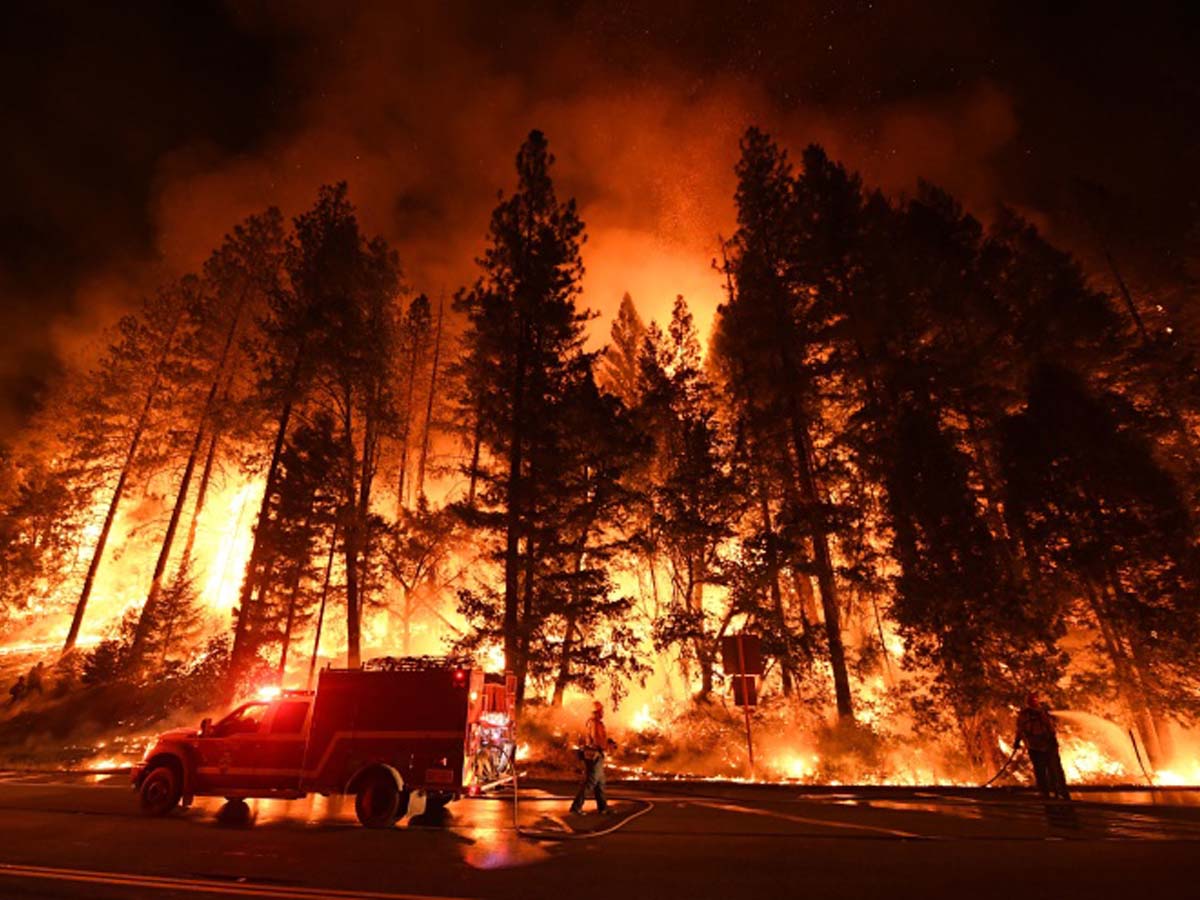Wildfire Preparedness & Planning

Preparing for Wildfires
Have an evacuation plan and emergency supplies/bag ready to go: The City of South Lake Tahoe website has an excellent emergency/disaster information webpage that includes a Preparedness Guide, Neighborhood Evacuation Maps, and information about how to sign up for Reverse 911, which can send alerts to your phone in the event of an emergency evacuation.
At a minimum, you should have ready to go:
- Plenty of bottled water and food for yourself and family
- Clean clothes and hygiene products
- Blanket/sleeping bag
- Radio and flashlight with plenty of batteries for both
- Any necessary cables, adaptors and power cords
- Full tank of gas in your car, and parked facing the street for easiest escape
- Prescription medicines
- Important documents (licenses, U.S. passport, copies of wills, etc.)
Keep your cell phone fully charged when wildfire activity is nearby so you’ll receive alerts and be able to communicate. Visit the City’s webpage for more tips on how to prepare, plan, and pack for an emergency. This Evacuation Checklist from the Tahoe Fire & Fuels Team can also help you prepare.
There are a lot of websites with information about how to pack an emergency evacuation bag and prepare for a wildfire. Here are some more of them:
-
- American Red Cross Wildfire Safety
- CAL FIRE's firePLANNER for stay safe and stay informed information
- gov Prepare for Wildfires (U.S. Government website partnered with FEMA and others)
- Tahoe Living with Wildfire guide
Staying In-The-Know During Wildfire Season
- El Dorado County alerts
- City of South Lake Tahoe alerts
- Douglas County, Nevada alerts
- Tahoe Alerts, one stop shop for alerts based on your location
- InciWeb is an interagency, all-risk incident management site that is constantly updated with information from a number of regional coordination centers. Some of the reporting organizations involved are the U.S. Forest Service, U.S. Fish & Wildlife Service, CalFire, and the U.S.
-
Perimeter Map is also a good resource for knowing locations of fires and evacuation zones.
- It’s a good idea to be current about local and regional road closures due to wildfire as well – visit CalTrans’ Road Information webpage to check on the status of any highway in California.
- For Nevada, visit NDOT’s 511 webpage.
- LTCC has multiple Air Quality Index (AQI) monitors on campus that you can view online at IQ Air.
- Current exterior AQI conditions on campus are also available online via IQ Air.
- IQ Air is available as a downloadable app for both Apple and Android.
Always limit your time outdoors when air quality is poor. The elderly and the very young are particularly vulnerable to smoke-filled air that is heavy with particulates and ash.
- Lake Tahoe Television, KRLT 93.9FM/KOWL 1490AM, SouthTahoeNow.com and the Tahoe Daily Tribune all do regular updates on local and regional wildfires on air, and on their websites and social media accounts.
- It’s a good idea to bookmark these webpages to click to them quickly.
- CAL FIRE Twitter: @CALFIRE_PIO & @CALFIREAEU
- El Dorado County Sheriff’s Facebook: El Dorado Sheriff
- El Dorado County Sheriff’s Twitter: @ElDoradoSheriff
- El Dorado County’s Facebook: El Dorado County, CA - Government
- El Dorado County’s Twitter: @CountyElDorado
- Eldorado National Forest Twitter: @EldoradoNF
LTCC Fire-Related Campus Closure
In the event of a campus closure due to any kind of emergency, LTCC uses the LTCC Alert text/phone/email system to notify students and staff. All staff and faculty are automatically set to receive these alerts. Students are uploaded into a program to receive alerts based on their registration information submitted each quarter.
While this is a useful alert system, you are encouraged to use the above resources to be best informed about fast-moving wildfires in the Tahoe Basin area and beyond.
